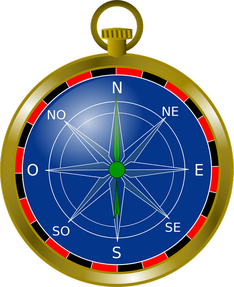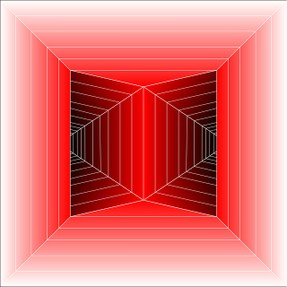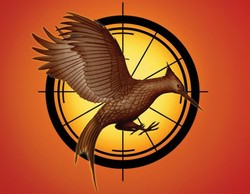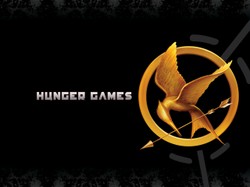 A friend, engrossed in Film Studies at university, once explained to me the winning sequence in a trilogy.
A friend, engrossed in Film Studies at university, once explained to me the winning sequence in a trilogy.
The first is all about action. It gets the blood pumping and makes us care about the characters. Constantly seeing them in so much peril will do that.
The second has some action, but it's more about setting a scene. This is where we fill in the context and the background color. Our narrow vision pulls back and we see not just a world, but a universe.
The third is the grand finale, playing out the action on a much bigger stage.
She used the example of the Star Wars trilogy of films (this was back in the days before the three prequels). A New Hope was swash-buckling fun. Everyone loved it before it was the first. It was original, simple and made us love Luke, Leia, Han, Chewbacca and Obi-Wan Kenobi.
The Empire Strikes Back was the one which no-one seemed to like at first. But it's the one that everyone quoted and harked back to later. It took years for people to realize that it was the most important of the three. It had Yoda in it for a start.
Then Return of the Jedi painted its adventure over a much bigger platform, with plots and sub-plots, and a much bigger special effects budget. The older people whined about Ewoks, but mostly viewers thought it a stunning ending.
Suzanne Collins seems to have followed this same strategy with her The Hunger Games trilogy. I've not heard much love for Catching Fire, but I loved it. I hungered for more details - how this had happened, what led to these moments, what were the lives of the victors like throughout the past of the games.
In short, I wanted the history and I got it. One day, I think those criticizing this book will look at it like Star Wars fans view Empire. It's the deepest, most startling of the three.



 A friend, engrossed in Film Studies at university, once explained to me the winning sequence in a trilogy.
A friend, engrossed in Film Studies at university, once explained to me the winning sequence in a trilogy. 
 One prize for winning the Hunger Games is that the victor does not have to enter the Reaping again.
One prize for winning the Hunger Games is that the victor does not have to enter the Reaping again.





 St Tydecho's Churches in West Waleson 09/03/2014
St Tydecho's Churches in West Waleson 09/03/2014
 Goodies for an Outlander Premiere Partyon 03/06/2015
Goodies for an Outlander Premiere Partyon 03/06/2015
 Holocaust Memorial Day Interview with Rainer Höss, Grandson of Rudolf Architect of Auschwitzon 01/24/2015
Holocaust Memorial Day Interview with Rainer Höss, Grandson of Rudolf Architect of Auschwitzon 01/24/2015
 Romantic Valentine Gifts for an Outlander Fanon 01/16/2015
Romantic Valentine Gifts for an Outlander Fanon 01/16/2015



Comments
Soon as you sort your computer out, I'll be glad to Skype. I'm on there right now, ranting about Sycharth with friends. :) (http://wizzley.com/finding-sycharth-t... )
Anytime :) I wish you lived closer and/or my computer was working so we could skype and with Elen - she could use some intelligent non-mom conversation about her reading choices!
Ah! I should have worked that out. Thanks!
I totally agree with your assessment here. That's why I loved 'Catching Fire' so much, because of that extra data to assimilate. It's not nearly so clear-cut as in the first novel.
Cariad, the YA crowd is Young Adult :)
To be frank, this is the book where, to my eyes, Katniss started experiencing a pluthera of mind-fuck after mind-fuck(pardon the French here...sometimes there's really only one way to put it....and here we have it!) As did everyone else, for that matter...so it was fascinating to go through the "WTF!" and "Who can you trust?" and "What NOW?!" - when your world gets shattered, where do you go, who do you turn to? This book asks us all to look deeper - to trust and to turn away sometimes from what we'd instinctually think and do. I liked this book in conjunction with the first but the third not quite as much as the first two. Still flew through it, but....there was more to chew on in these first two.
Wayfarer - Excuse my ignorance, but what is the YA crowd? I am looking forward to the movie coming out, but I do wonder how they'll translate this one onto the silver screen. So much will have to happen in flashbacks or some device which takes us into Katniss's head, like voice-overs.
Empire was always a slow burner. I think Catching Fire will be too.
Lucas - I think Katniss and paranoia is a running theme throughout the trilogy! Though I do see your point here. It was mostly the history of everything that I loved. In many ways, Katniss took a bad seat for me here. It was everyone else's stories which grabbed me.
I don't want to give any Mockingjay spoilers here, but I can see two distinct halves. The latter half all takes place in a certain location, which I think will be film four.
Still prefers the first book, the Games felt better, whereas in Catching Fire, it was mostly Katniss being paranoid.. Still, I wonder how they'd manage to split Mockingjay into 2 movies...